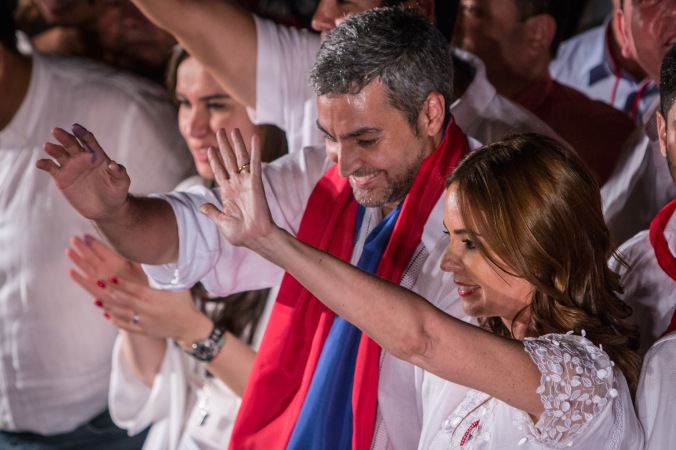This past Sunday Paraguayans went to the polls and elected Mario Abdo Benítez to a five-year term as president. His close personal ties to the dictatorship of Alfredo Stroessner (1954-1989) and – Abdo is the son of Stroessner’s former personal secretary – has warranted scrutiny from Paraguayan leftists. Many human rights activists, historians, and social scientist have denounced Stroessner’s infamous authoritarianism and anyone associated with the regime. The Paraguayan people, however, remember a different narrative – one that focuses on economics and vast improvements in everyday life in Paraguay. Today, many working, middle, and upper class recollections about the dictatorship focus on economic and cultural successes. Moreover, Paraguayans fondly and openly reminisce about low rates of petty crime on the streets of Asunción, Paraguay’s capital city during the dictatorship.
During Stroessner’s long rule he held power by not only promising real economic growth, but also delivering life-changing infrastructure projects, improving household purchasing power, while simultaneously increasing economic ties to Brazil. Stroessner’s government brought running water to Asunción in the mid-1960s. The first hydroelectric dam (Acaray) in Paraguay began illuminating and air-conditioning homes in the late 1960s; by the 1970s even more homes and businesses could enjoy the comforts of electricity from the copious production of what was then the world’s largest hydroelectric dam, Itapú. Stroessner’s regime made travel – notoriously difficult in the early twentieth century – accessible by building roads, bridges, and improving air travel. This meant that for the first time Paraguayans could (and did) travel to Brazil to enjoy the sunny vacation beaches or even sojourn to Europe or the United States. Significantly, the regime also steadied the price of the Guaraní – the Paraguayan currency. A steady exchange rate meant that Paraguayans purchased new consumer goods from abroad, including autos, domestic appliances, canned foods, and exotic liquors.
Everyday life improved dramatically with the opening of supermarkets, shopping centers, hotels, restaurants with live entertainment, and clean and tidy streets. The regime immortalized these improvements in highly controlled press recounting the numerous ways in which life was improving daily under the regime. Examples recounted in the press included improved education opportunities, art gallery openings with local and international artists, and large opulent homes and buildings in Asunción. Photos in tourists guides, stamps, and postcards of the era immortalized this transition. These developments changed how Paraguayans viewed themselves and their nation. They were no longer a small isolated landlocked nation, but rather a booming power in the center of South America.
Although the Stroessner’s Colorado Party has held power in Paraguay for all but a brief interlude under Fernando Lugo (2008-2012) the election of Abdo has once again brought to the fore today’s Paraguayan successes. Paraguay today after five-years of Horacio Cartes is in many ways prosperous and stable. New flashy skyscrapers line the landscape, new shopping opportunities open daily in Asunción, and a stable economy funded by high agricultural prices and investments in infrastructure has meant that Paraguayans of a certain class travel widely. The less palpable side of politics and life in Paraguay, such as the murder of journalists, student protests, corruption, encroachment by agro-business on indigenous and peasant lands, infringements on women’s rights, and smuggling have been subsumed by a narrative of success, much like the current memory of the Stroessner regime. Although the end of Stroessner’s authoritarian government came almost twenty years ago, the policies and economics of the era survive and thrive.
Bridget María Chesterton – Professor of History, Buffalo State
